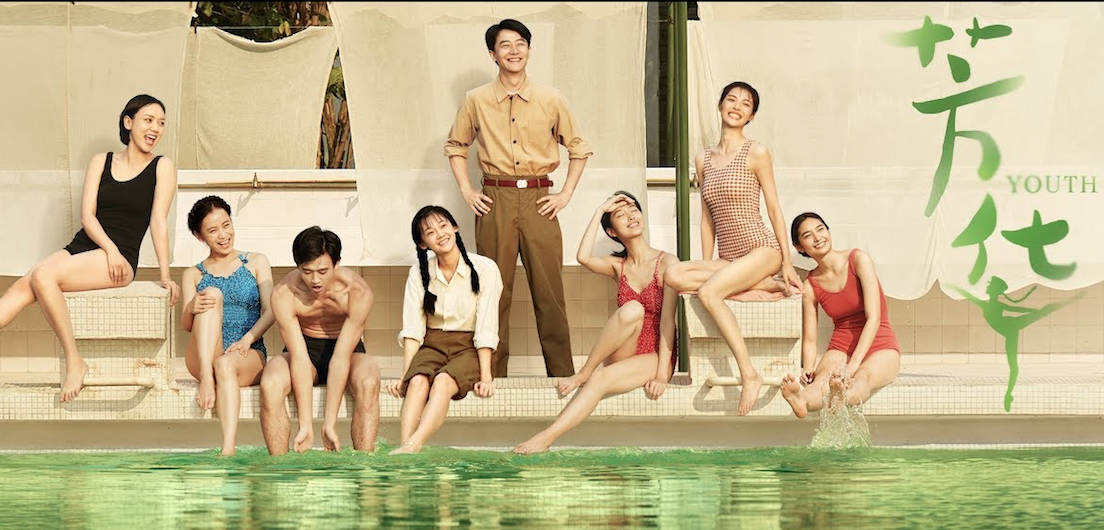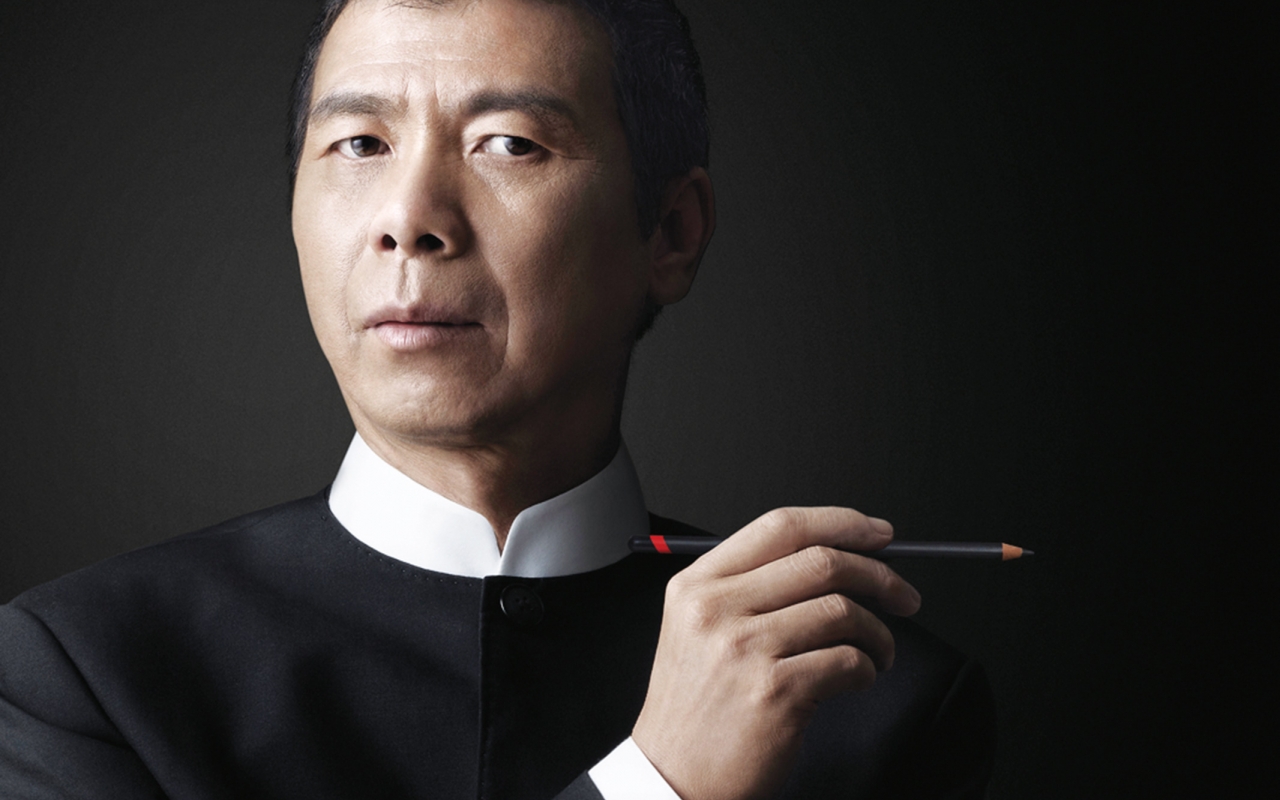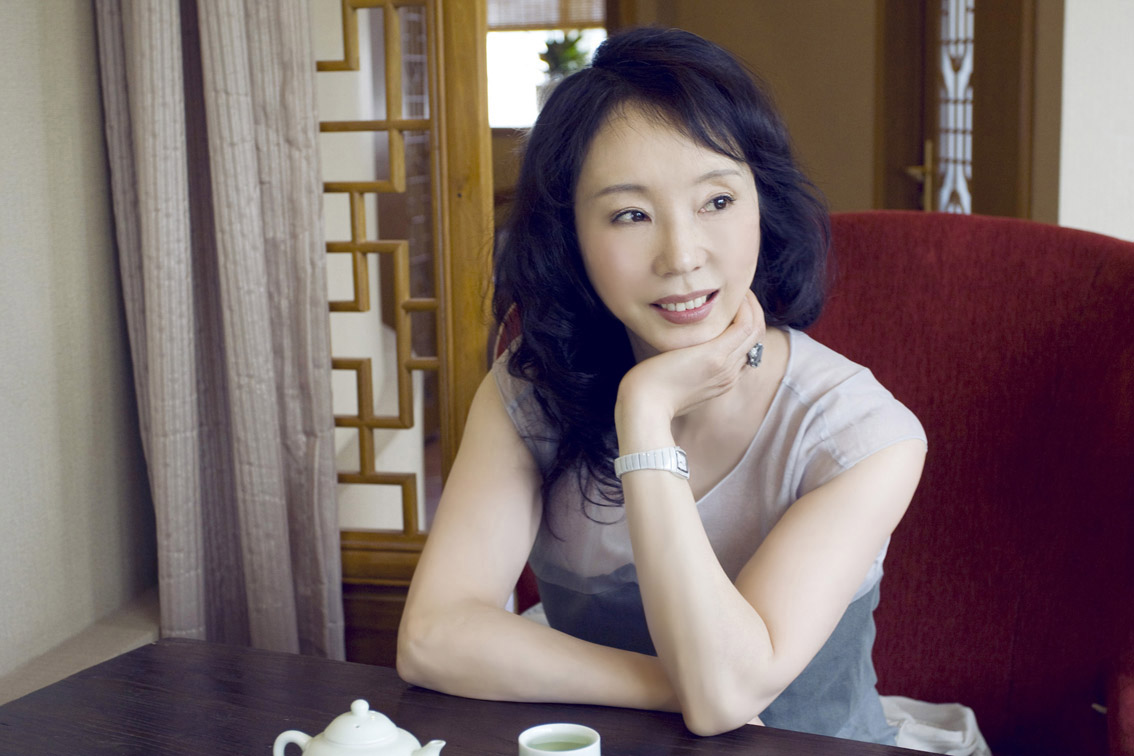
Chinese film Youth (2017), earning 359 million yuan ($55.3 million) in its third week, continues to dominate China's box office after holiday season rush since it opened on December 12, 2017.
The movie follows the lives of three performers from a military-arts troupe as they grow from teenagers to adults. It's a sweeping sentimental melodrama rather than a film about the residual effects of conflict and war.
The director of this film, Feng Xiaogang, known for his epic tearjerkers and glossy romantic comedies, is an internationally acclaimed filmmaker and often referred to as "China's Spielberg."
Unlike his previous war films Assembly (2007) and Back to 1942 (2011), Feng was inspired to make the film based on his own experiences as a member of a provincial military-arts troupe in the 1970s.

Beginning in the final days of the Cultural Revolution (1966-1976), to the Sino-Vietnamese War of 1979, and ending in the mid-1990s, Feng's Youth (2017) explored the loss of innocence against the backdrop of war and a growing nation.
The main parts of the film take place during the Sino-Vietnam war, a period not many films have explored. But the film is filled with nostalgic moments that pull at the heartstrings while recalling memories of innocent teenage years.
For audiences over the age of 50, the film offers a historical familiarity that viewers will connect with on a deeper and more personal level.
Miao Miao, one of China’s rising new talents, plays one of the troupe’s dancers, He Xiaoping. In one memorable scene, she is bullied and discriminated against, and it’s moment viewers will be able to empathize with, rather than merely observe. Many have experienced similar situations whether at work or school.
Sweeping cinematography by Pan Luo creates a visual poem of colors, landscape, and emotion, turning the film into a visual metaphor for life.
Historical accuracy is one of the trademarks of Feng's signature style, and it extends to every detail. Set designs and costume details provide viewers with a glimpse into what China looked like four decades ago.
The nostalgic sentiment has overwhelmed Chinese audiences. The signature dance moves, music, and language of each different period evokes memories that only a film of this caliber can provide.
The film is adapted from Yan Geling’s semi-autobiographical novel You Touched Me (2017); the cruelty of war rests in the background of the story while in the forefront Yan shares experiences from her past, using a female narrator to guide the course of the story.

Yan, a Chinese American writer whose novel The Flowers of War (2015) was adapted for the screen by Zhang Yimou, is known for her vivid descriptions of human emotion and anguish.
Yan’s resume includes collaborations with Ang Lee, Chen Kaige, and Li Shaohong. Yan was inspired to write the novel as a way of memorializing her youth and the friends she made while growing up.
At the age of 12, Yan joined the People's Liberation Army (PLA) as a dancer in an arts-troupe. At 25, she retired from active service after serving in the military for eight years.
She volunteered to be a war correspondent during the Sino-Vietnamese border conflicts in the late 1970's, interviewing wounded soldiers at a field hospital in Yunnan Province. It was during this period that she first started writing.
When she was 21, she published her first short story, about the arrival of a girl at a military station manned by seven young male soldiers in the Tibet Autonomous Region. Her early work is connected to the military experience at one level or another.
Her feelings of nostalgia while in the US helped her write about the experiences of a military arts troupe during the Sino-Vietnam War.
The film has been described as a tribute to the veterans of the Sino-Vietnamese War, a subject rarely touched upon in cinema.
It doesn’t go into detail about the Sino-Vietnamese War, but it’s in the background.
Continuous montage sequences and emotionally-driven music function as small celebrations of carefree innocence.
In Youth (2017), one can listen to songs from the past, passionate speeches, and see the red, rhubarb and green tones, military uniforms, green school bags, twisted black braids, and images of past leaders, a kaleidoscope of Chinese history.
It was an age of innocence when the characters were shielded from dating and selfish motives. The blood and bullets from the war serve as an emotional assault on the loss of innocence.
Actor Huang Xuan plays Liu Feng, another member of the troupe.
In the film, Liu and He serve in the Sino-Vietnamese War and become heroes for their acts of courage. After they are both discharged from the Army, they avoid contact with the other members of their old troupe.
The losses the characters suffer has moved audiences who cannot forget their teenage years, while also looking back upon the whirlwind of historical changes that have happened since they were young.
But overall, the film captures much of the heartache from the late 1970s. It’s the beauty of youth that heightens sensitivity covering the entire spectrum of emotions of love, anger, longing, and hope.
Box office returns have demonstrated the emotional pull of Youth (2017). By January 3, the film had raked in over 1 billion yuan.
It is a Huayi Brothers production premiered at last year's Toronto International Film Festival to overwhelming reviews, and was slated for an October bow in China but was later pushed to coincide with the holiday rush.
Audiences from different cultural backgrounds may have problems relating to the film, but at the same time won’t feel excluded as the story explores the emotional experience of growing up.


